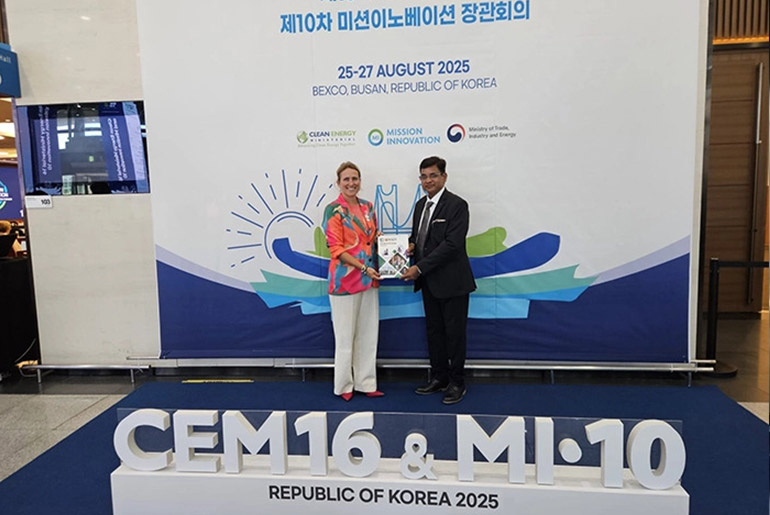The Long Duration Energy Storage (LDES) Council and the National Solar Energy Federation of India (NSEFI) have signed a Memorandum of Understanding (MoU) to accelerate collaboration on renewable energy and storage deployment in India and the broader region.
This partnership, signed in Busan, South Korea, on August 26, underscores the shared commitment of both organizations to unlock renewable energy at scale, ensure reliable and affordable power, and position India as a global leader in energy transition.
The agreement, signed on the sidelines of the Clean Energy Ministerial in Busan, establishes a framework for cooperation spanning knowledge exchange, policy dialogue, capacity building, and joint advocacy. Under the MoU, LDES Council and NSEFI will collaborate on joint studies and publications, training and technical programs, industry delegations, and regional and international events — all aimed at advancing policy design and market development to enable large-scale deployment of solar-plus-storage solutions in India.
This partnership also aligns with the storage requirements under India’s National Electricity Plan (NEP 2023), projected to be rising from 82 GWh by 2027 to 411 GWh by 2032, and reaching 2,380 GWh by 2047. Insights from the several LDES Council analyses and a recent LDES Council–International Solar Alliance report further underscore that scaling long duration storage is indispensable for full decarbonisation — positioning India to integrate its growing solar capacity with the round-the-clock reliability needed for its 2030 and 2070 targets.
Julia Souder, CEO of the LDES Council, commented:
“We are thrilled to formalise our partnership with the National Solar Energy Federation of India through this Memorandum of Understanding. India’s remarkable solar ambition stands to gain significantly from Long Duration Energy Storage (LDES) to enable a cost-effective, reliable, and fully decarbonized energy system with technologies delivering clean energy over multiple hours and days. By aligning LDES deployment with NSEFI’s network and expertise, we can enhance grid flexibility, enable firm renewable energy supply, and drive down costs—helping scale storage diversity, green hydrogen production and accelerate India’s overall energy transition.”
Prakash Chand Garg, Principal Advisor of the National Solar Energy Federation of India, commented:
Long Duration Energy Storage will be pivotal in ensuring that renewable energy can truly become the backbone of India’s energy system. Through this MoU with the LDES Council, NSEFI is committed to advancing collaborative research, policy dialogue, and industry partnerships that bring scalable and region-specific storage solutions to the forefront. By combining our strengths in knowledge exchange, skill development, and project collaboration, we aim to accelerate deployment of LDES technologies that complement solar, wind, and green hydrogen — creating a more resilient, flexible, and sustainable energy ecosystem for India and the region.”



